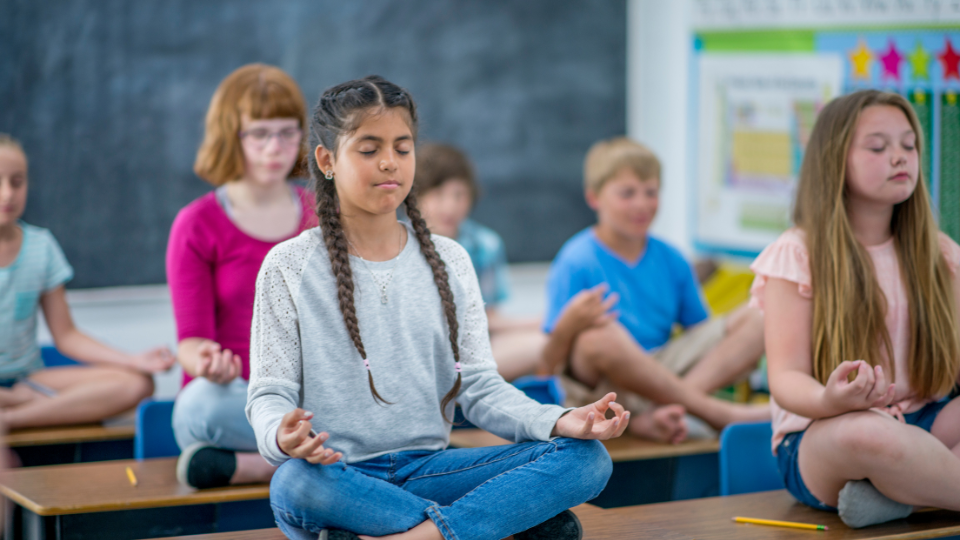Fostering Confidence Through Tranquil Moments

Studies indicate that implementing calming methods, such as mindfulness practices, significantly bolsters self-esteem and enhances self-efficacy—which is an individual's belief in their capabilities (Chandna & Moosath, 2022). Elevations in both self-esteem and self-efficacy play pivotal roles in fortifying confidence levels across diverse age groups, from youth to adults.
Prioritizing time for moments of tranquility proves to be highly valuable and is a cost-effective approach to cultivating confidence. Below are recommendations for incorporating calming practices into your routine:
- Mindfulness Meditation: Practicing mindfulness can help calm the mind and increase self-awareness. Sit quietly, focus on your breath, and observe your thoughts without judgment. Over time, this can help build confidence by allowing you to understand better and manage your emotions.
- Deep Breathing Exercises: Deep breathing exercises can help reduce stress and promote relaxation. Taking slow, deep breaths can help calm the nervous system and boost confidence by providing a sense of control over your body's response to stress.
- Visualization: Spend some time visualizing yourself succeeding in a particular task or achieving your goals. Visualizing success can help boost confidence by creating a mental image of yourself accomplishing what you desire, making it feel more achievable.
- Yoga: Practicing yoga combines physical postures, breathing exercises, and meditation to promote relaxation and reduce stress. Yoga can help increase confidence by improving body awareness, flexibility, and strength, while aslo calming the mind.
- Journaling: Writing down your thoughts and feelings can be a therapeutic way to process emotions and gain perspective on challenging situations. Journaling can help increase confidence by allowing you to reflect on past successes and identify areas for growth.
- Creative Expression: Engage in creative activities such as painting, drawing, writing, or playing music. Creative expression can be a freeing outlet for emotions and can help boost confidence by providing a sense of accomplishment and self-expression.
- Spending Time in Nature: Spending time outdoors, whether it's going for a walk in the park, hiking in the mountains, or simply sitting by a body of water, can have a calming effect on the mind and body. Connecting with nature can help reduce stress and increase confidence by fostering a sense of peace and well-being.
- Listening to Music: Listening to calming music or sounds can help relax the mind and elevate mood. Create a playlist of your favorite soothing songs or nature sounds to help promote relaxation and boost confidence.
- Practicing Gratitude: Take a few moments each day to reflect on things you're grateful for. Practicing gratitude can help shift your focus away from negative thoughts and increase feelings of self-worth and confidence.
Resources
American Psychological Association. (2020, April 1). Nurtured by nature. Monitor on
Psychology, 51(3). https://www.apa.org/monitor/2020/04/nurtured-nature
Chandna, S., Sharma, P., & Moosath, H. (2022). The Mindful Self: Exploring Mindfulness in
Relation with Self-esteem and Self-efficacy in Indian Population. Psychological studies, 67(2),
261–272. https://doi.org/10.1007/s12646-021-00636-5
Drevets, T. (2021, July). The benefits of gratitude. The Confidence Group.
https://theconfidencegroup.com/the-benefits-of-gratitude/
Madeson, M. (2020, June). Self-Esteem journals, prompts, PDF's, and Ideas. Positive Psychology.
https://positivepsychology.com/self-esteem-journal-prompts/#comment-list
Tan, C. Y., Chuah, C. Q., Lee, S. T., & Tan, C. S. (2021). Being Creative Makes You Happier: The
Positive Effect of Creativity on Subjective Well-Being. International journal of environmental
research and public health, 18(14), 7244. https://doi.org/10.3390/ijerph18147244
Authors
Christina pay, USU Extension Assistant Professor
Related Research


